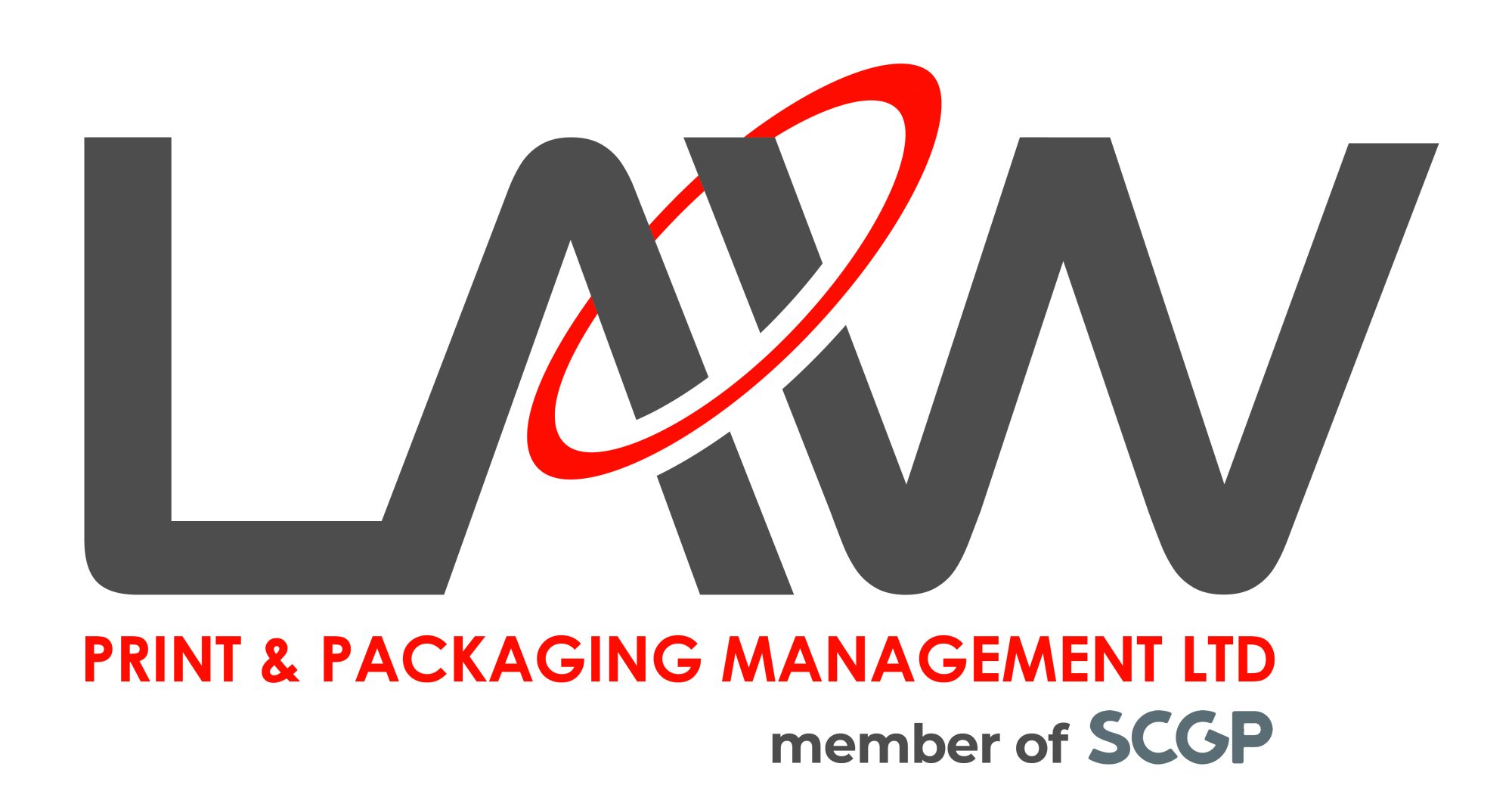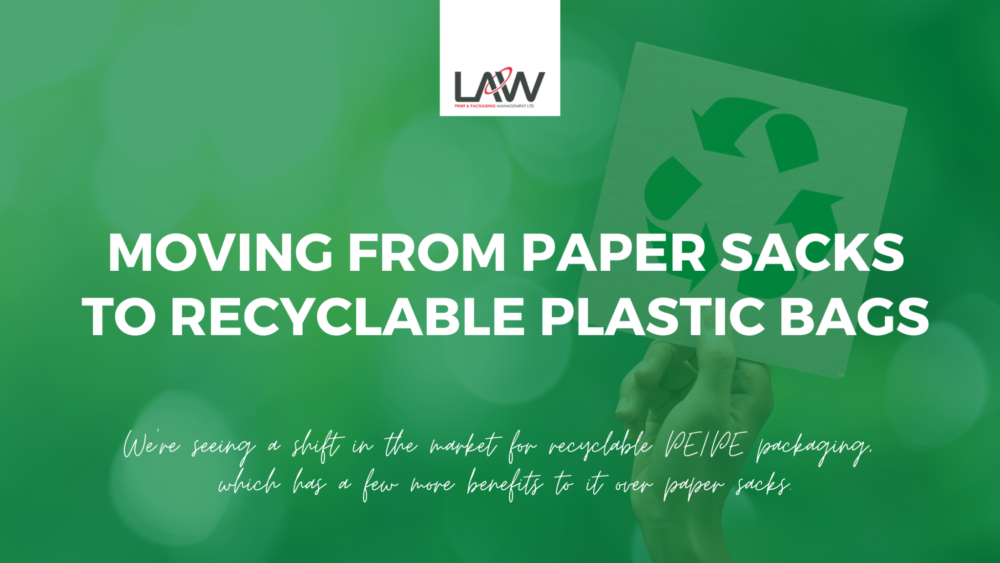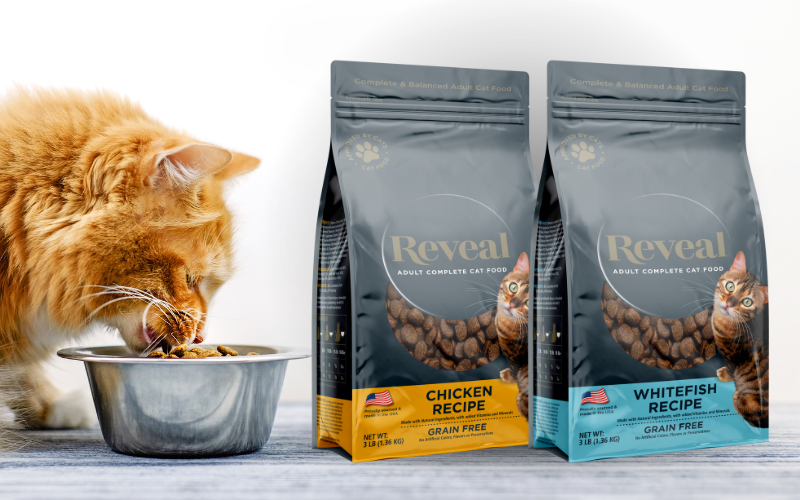Paper sacks are useful in many ways. We have been providing customers with paper sacks, which are mostly used for food produce such as flour, sugar and also pet food, or a variety of building products such as cement and powdered adhesives. However, in recent months, we have seen a shift in some of these markets to recyclable plastic packaging alternatives.
PP woven bags and large PE/PE bags from our Ready2Recycle range are proving increasingly popular, offering benefits such as improved barrier properties and puncture resistance. Add to that the exposure mono material plastics are receiving from retailers across the UK, who are now providing soft plastic recycling points, this is fuelling the interest from brands who are eager to keep up with the sustainability trends.
What are the advantages of moving from paper to recyclable mono material plastic? In this blog, we’ll delve into the pros and cons of plastic over paper. While both mediums offer different benefits, we’d like to help you make an informed decision how what is best suited to your products, by outlining the reasons why recyclable plastic bags can edge the win over paper sacks.

How are paper sacks manufactured?
Paper sacks are made from wood pulp that is mixed with water and chemicals to create a pulp mixture. The wood pulp is usually extracted from trees but can also come from recycled paper fibres. The mixture is then formed into large sheets of paper using a paper machine and printed with the desired design. The sheets are then cut to the appropriate size for the desired paper sack and fed into a machine that folds and glues the paper to form the shape of the paper sack.
What makes flexible packaging so attractive to brands?
Flexible packaging is considerably stronger than paper and offers various benefits such as keeping products fresher for longer. They are also puncture-resistant, so are ideal for shipping long distances and can be printed with high-quality graphics which are key to brands that want to stand out from the crowd.
It’s important to know some specifics about your product to be packaged before choosing whether paper sacks or recyclable bags are the right fit for your business.
Without question, talking to a packaging supplier (like Law Print!) is key to gaining the information you need. We’ve been in the industry for many years and we will understand your needs first in order to understand which materials will and will not work for your product. We will ask crucial questions such as:
- What type of product are you packing?
- Can the film be printed to meet your visual/branding needs?
- How it will be packed? Will you be using an automatic line or pack manually?
- Will it be handled often? Will it be subjected to rough handling?
- What kind of climates/environments will it be subjected to?
- Does the product need to have a long shelf-life? Does it need an oxygen or moisture barrier?
Once our chat is complete and we know more about your product and the business behind it, we can determine whether a paper sack or a mono material plastic bag would be more suitable.

In 2019, we launched our Ready2Recycle range. Thanks to the mono material structure, the PE/PE pouches are 100% recyclable, providing a more sustainable packaging solution for your brand.
Ready2Recycle is gaining more and more traction as businesses need to achieve new sustainability targets. The benefits of a circular economy are now more widely understood, and although paper sacks are widely recyclable, they require a vast amount of energy to be produced and they do not come with the added benefits as outlined above.
We are currently working on a number of projects helping well established brands to transition away from traditional paper sacks. If you’re also interested in moving to flexible packaging and would like to know more, please get in touch by using the links below or just give us a call.
If your brand wants to invest in quality packaging, we will guide you through the entire print process. In addition, we are providing recommendations along the way to improve efficiency, reduce costs and add untold value to the end product.
Contact us on +44 (0) 161 440 7302 or follow this link to complete our contact form.


